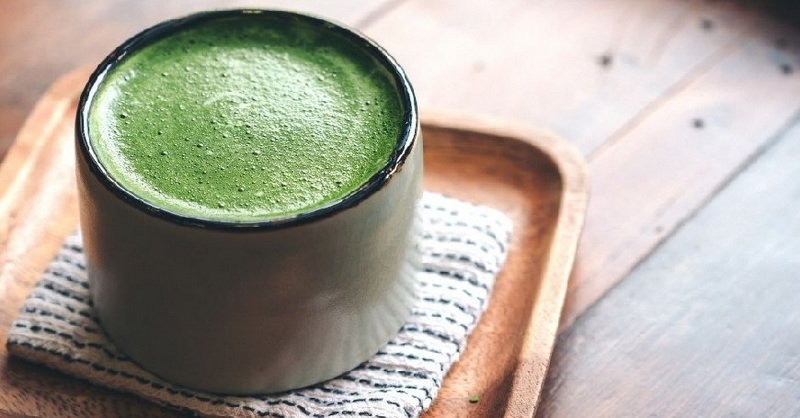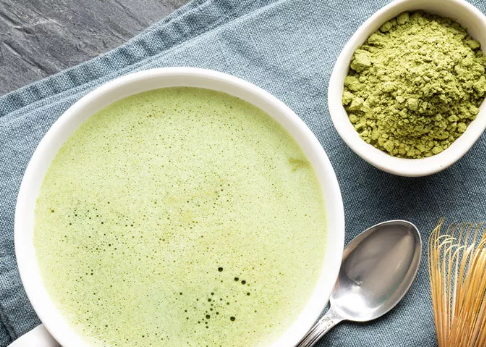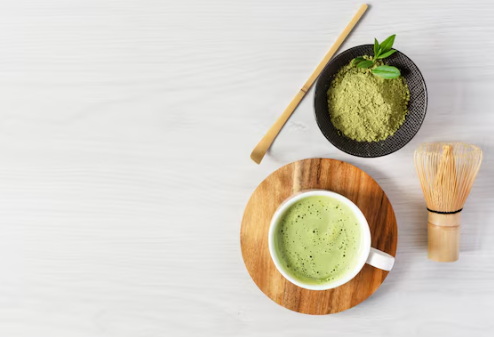Content Menu
● Understanding Green Tea L-Theanine 60%
>> What is L-Theanine?
>> Why 60% Concentration?
>> Benefits of L-Theanine
● Key Factors to Consider When Choosing a Factory
>> 1. Quality and Purity
>>> Importance of High Purity
>>> Certifications and Testing
>>> Natural Origin
>> 2. Extraction Method
>>> Traditional Extraction
>>> Modern Extraction
>>> Choosing the Right Method
>> 3. Manufacturing Capacity and Scalability
>>> Assessing Production Volume
>>> Lead Times and Delivery
>> 4. Cost and Pricing Structure
>>> Understanding Pricing Factors
>>> Comparing Quotes
>> 5. Regulatory Compliance
>>> Meeting International Standards
>>> Documentation and Traceability
>> 6. Reputation and Experience
>>> Industry Standing
>>> Years in Business
>> 7. Customization Options
>>> Tailored Formulations
>>> Packaging and Labeling
>> 8. Sustainability Practices
>>> Ethical Sourcing
>>> Environmental Impact
● Steps to Take Before Making a Decision
>> Requesting Samples
>>> Importance of Testing
>>> Third-Party Verification
>> Visiting the Factory
>>> On-Site Assessment
>>> Meeting the Team
>> Reviewing Documentation
>>> Certificates of Analysis
>>> Traceability Records
● Conclusion
● FAQ
>> 1. What is L-Theanine and why is it used in supplements?
>> 2. What does the "60%" in Green Tea L-Theanine 60% Factory mean?
>> 3. How can I ensure the L-Theanine from a factory is of high quality?
>> 4. What are the different extraction methods for L-Theanine, and which is best?
>> 5. Why is sustainability important when choosing a Green Tea L-Theanine factory?
● Citations:
In the dynamic world of dietary supplements and health products, Green Tea L-Theanine 60% Factory stands out as a key ingredient, prized for its calming and cognitive benefits[1]. As a business looking to incorporate this ingredient into your product line, selecting the right factory is crucial. This article will guide you through the essential factors to consider when choosing a Green Tea L-Theanine 60% Factory, ensuring you make an informed decision that aligns with your business goals.

Understanding Green Tea L-Theanine 60%
What is L-Theanine?
L-Theanine is a unique amino acid found primarily in green tea leaves (Camellia sinensis)[5]. It is known for its ability to promote relaxation without causing drowsiness, reduce anxiety, and improve cognitive function[5]. L-Theanine is an analogue of L-glutamate and L-glutamine, known for its calming and relaxing properties[1].
L-theanine is important because it adds to the umami flavor (tastiness) and sweetness of green tea[9].
Why 60% Concentration?
The "60%" in Green Tea L-Theanine 60% Factory refers to the concentration of L-Theanine in the extract[1]. This level of concentration is significant because it indicates a potent and effective formulation, making it a preferred choice for dietary supplements aimed at promoting relaxation, mental clarity, and overall well-being[1].
Benefits of L-Theanine
- Reduces Anxiety Levels L-Theanine can help reduce anxiety levels[5].
- Improves Cognitive Function It improves cognitive functions like memory, reaction time, and learning[5].
- Stabilizes Mood L-Theanine helps in stabilizing mood[5].
- Reduces Chronic Stress Responses It can reduce both mental and physical chronic stress responses[5].
Key Factors to Consider When Choosing a Factory
1. Quality and Purity
Importance of High Purity
Purity is paramount when it comes to ingredients like L-Theanine. A high-purity extract ensures that your final product is safe, effective, and free from unwanted contaminants[1].
Certifications and Testing
Look for factories that have certifications such as GMP (Good Manufacturing Practices), ISO, and FDA registration[3]. These certifications indicate that the factory adheres to strict quality control standards. Ensure that every lot is tested in a cGLP compliant lab[3].
Natural Origin
Opt for factories that extract L-Theanine from natural sources, such as green tea leaves[1]. Natural L-Theanine is the biologically active levorotatory enantiomer, which exhibits the full range of benefits[5].
2. Extraction Method
Traditional Extraction
Traditional methods involve extracting theanine from green tea leaves using water[2]. This process typically includes:
1. Extracting process quality green tea leaves with deionized water at about 45-55° C (about 113-131° F)[2].
2. Maintaining a water to tea leaves ratio of about 25:1[2].
3. Continuing the extraction for about 1.5 hrs, and filtering the resulting theanine extract using muslin cloth[2].
4. Re-extracting the residual tea leaves and combining the extracts[2].
5. Further purification using ion exchange chromatography and nanofiltration[2].
Modern Extraction
Newer methods allow for the production of natural L-Theanine from green tea leaves at purities of up to 90%[5]. One such method is fermentative biosynthesis, which synthesizes theanine using the same enzyme that green tea plants use[6].
Choosing the Right Method
Consider the pros and cons of each method. Traditional methods are well-established but may yield lower purity, while modern methods offer higher purity but may be more expensive.
3. Manufacturing Capacity and Scalability
Assessing Production Volume
Evaluate the factory's production capacity to ensure it can meet your current and future demands. A reliable factory should be able to scale up production as your business grows.
Lead Times and Delivery
Inquire about lead times for production and delivery. A factory with efficient processes and logistics will help you maintain a steady supply of L-Theanine for your products. MarkNature offers delivery services for their Green Tea Extract, 60% L-Theanine[1].
4. Cost and Pricing Structure
Understanding Pricing Factors
The cost of L-Theanine can vary based on several factors, including:
- Purity: Higher purity extracts may command a premium price[1].
- Extraction Method: Advanced extraction methods can impact the overall cost[5].
- Order Volume: Many factories offer volume discounts, so consider your order size when negotiating prices.
Comparing Quotes
Obtain quotes from multiple factories and compare them carefully. Don't focus solely on the lowest price; consider the overall value, including quality, reliability, and service.
5. Regulatory Compliance
Meeting International Standards
Ensure that the factory complies with all relevant international regulations, such as those set by the World Health Organization (WHO) and other regulatory bodies.
Documentation and Traceability
A reputable factory should provide comprehensive documentation for its products, including certificates of analysis (COAs) and traceability records. This documentation is essential for verifying the quality and safety of the L-Theanine extract.
6. Reputation and Experience
Industry Standing
Research the factory's reputation within the industry. Look for reviews, testimonials, and case studies that demonstrate their track record of success.
Years in Business
A factory with years of experience is more likely to have established processes and a deep understanding of the L-Theanine market.
7. Customization Options
Tailored Formulations
Some businesses may require custom formulations of L-Theanine to meet specific product requirements. Ensure that the factory offers customization options and has the expertise to develop tailored solutions. Botaniex offers customized specifications upon request for their Green Tea Extract[5].
Packaging and Labeling
Consider whether the factory offers custom packaging and labeling services. This can streamline your supply chain and ensure that your products are properly branded.
8. Sustainability Practices
Ethical Sourcing
Consumers are increasingly concerned about the sustainability and ethical sourcing of ingredients. Choose a factory that prioritizes sustainable practices, such as responsible sourcing of green tea leaves and eco-friendly manufacturing processes.
Environmental Impact
Inquire about the factory's environmental impact, including waste management and energy consumption. Supporting a factory with a commitment to sustainability can enhance your brand's reputation and appeal to environmentally conscious consumers.

Steps to Take Before Making a Decision
Requesting Samples
Importance of Testing
Before committing to a large order, request samples of L-Theanine from potential factories. This allows you to test the product for quality, purity, and consistency.
Third-Party Verification
Consider sending samples to a third-party lab for independent testing. This can provide an unbiased assessment of the L-Theanine extract and help you make a more informed decision.
Visiting the Factory
On-Site Assessment
If possible, visit the factory to conduct an on-site assessment of their facilities, processes, and quality control measures. This can provide valuable insights into the factory's operations and help you gauge their commitment to quality.
Meeting the Team
Meeting with the factory's management team can help you establish a strong working relationship and ensure that they understand your business needs.
Reviewing Documentation
Certificates of Analysis
Thoroughly review the factory's certificates of analysis (COAs) to verify the purity and potency of their L-Theanine extract. Pay close attention to the testing methods used and the results obtained.
Traceability Records
Examine the factory's traceability records to ensure that their L-Theanine extract can be traced back to its source. This is essential for verifying the authenticity and safety of the product.
Conclusion
Choosing the best Green Tea L-Theanine 60% Factory for your business requires careful consideration of several factors. By prioritizing quality, purity, extraction methods, manufacturing capacity, cost, regulatory compliance, reputation, customization options, and sustainability practices, you can make an informed decision that aligns with your business goals. Taking the time to request samples, visit the factory, and review documentation will further ensure that you select a reliable and trustworthy supplier.

FAQ
1. What is L-Theanine and why is it used in supplements?
L-Theanine is an amino acid found in green tea leaves, known for promoting relaxation, reducing anxiety, and improving cognitive function[5]. It's used in supplements for its calming and mental clarity benefits[1].
2. What does the "60%" in Green Tea L-Theanine 60% Factory mean?
The "60%" refers to the concentration of L-Theanine in the extract[1]. This high concentration ensures a potent and effective formulation for dietary supplements[1].
3. How can I ensure the L-Theanine from a factory is of high quality?
Ensure high quality by checking for certifications like GMP, ISO, and FDA registration[3]. Request samples for testing, and review Certificates of Analysis (COAs) for purity and potency.
4. What are the different extraction methods for L-Theanine, and which is best?
Traditional methods use water extraction[2], while modern methods include fermentative biosynthesis[6]. The best method depends on your needs, with modern methods offering higher purity but potentially higher costs.
5. Why is sustainability important when choosing a Green Tea L-Theanine factory?
Sustainability ensures ethical sourcing and eco-friendly manufacturing, which enhances your brand's reputation and appeals to environmentally conscious consumers. Look for factories with responsible sourcing and waste management practices.
Citations:
[1] https://www.marknature.com/products/green-tea-extract-60-l-theanine
[2] https://patents.google.com/patent/US7303773B2/en
[3] https://www.zhounutrition.com/blogs/the-greatness-files/green-tea-extract-q-a
[4] https://www.medicalnewstoday.com/articles/324120
[5] https://www.botaniex.com/green-tea-l-theanine-60.html
[6] https://firstendurance.com/blogs/articles/suntheanine%C2%AE-your-secret-weapon-part-2
[7] https://charlestonteagarden.com/pages/faq
[8] https://www.webmd.com/vitamins-and-supplements/theanine-uses-and-risks
[9] https://www.myjapanesegreentea.com/l-theanine
[10] https://pmc.ncbi.nlm.nih.gov/articles/PMC4787341/






























